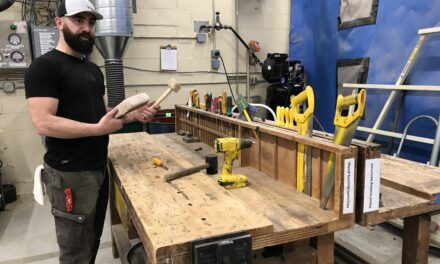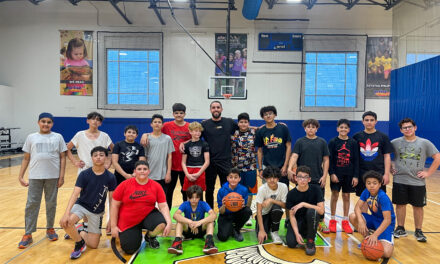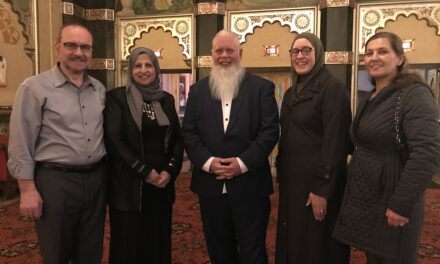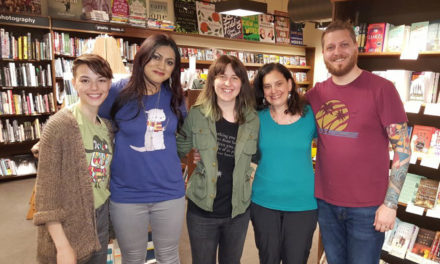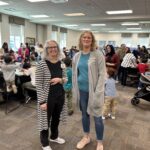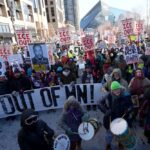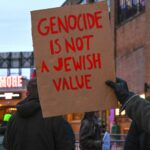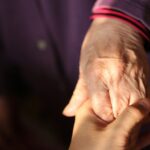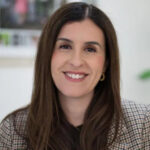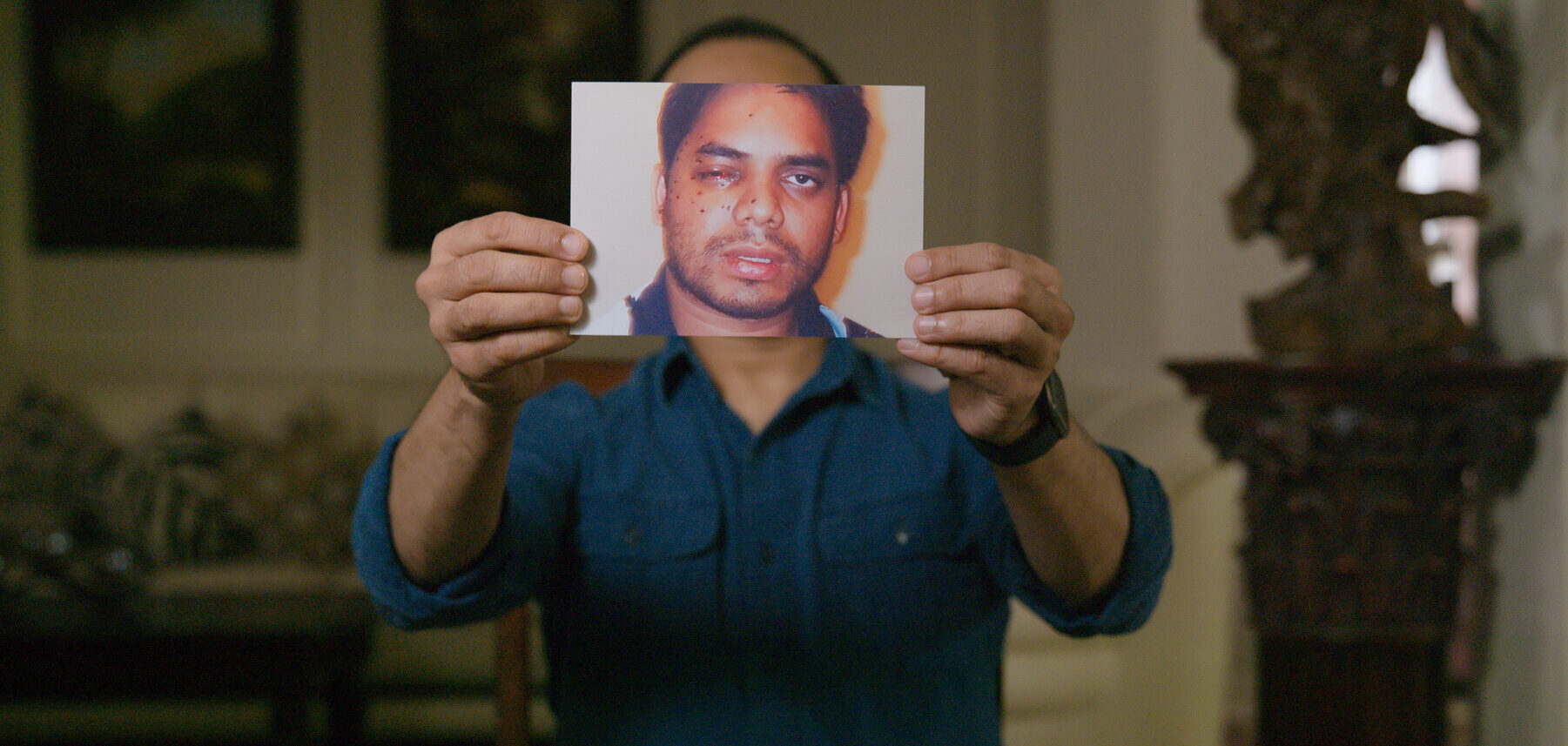
Photos courtesy of Rais Bhuiyan
Rais Bhuiyan holds up a photo of his face, damaged by a neo-Nazi who shot him from point-blank range in a post-9/11 revenge attack on Muslims.
In September and October of 2001, an American neo-Nazi went “hunting” for Muslims in revenge for the 9/11 attacks. He killed two people and seriously injured a third, Rais Bhuiyan, a devout Muslim who immigrated to the United States from Bangladesh. He shot Bhuiyan in the face.
What happens next is the subject of Pain and Peace, the opening night feature at the 9th Annual Milwaukee Muslim Film Festival, Thursday, Oct. 17, at the Oriental Theatre. Bhuiyan will participate in a talkback with the audience following the film and a reception with Middle Eastern appetizers.
The four-day festival runs Oct. 17-20, featuring eight award-winning films about the lives and experiences of Muslims around the world today. Tickets cost $13 for adults; $11 for seniors, students and educators with ID; and $7 for children 12 years old and under.
See the full line-up and purchase tickets here.
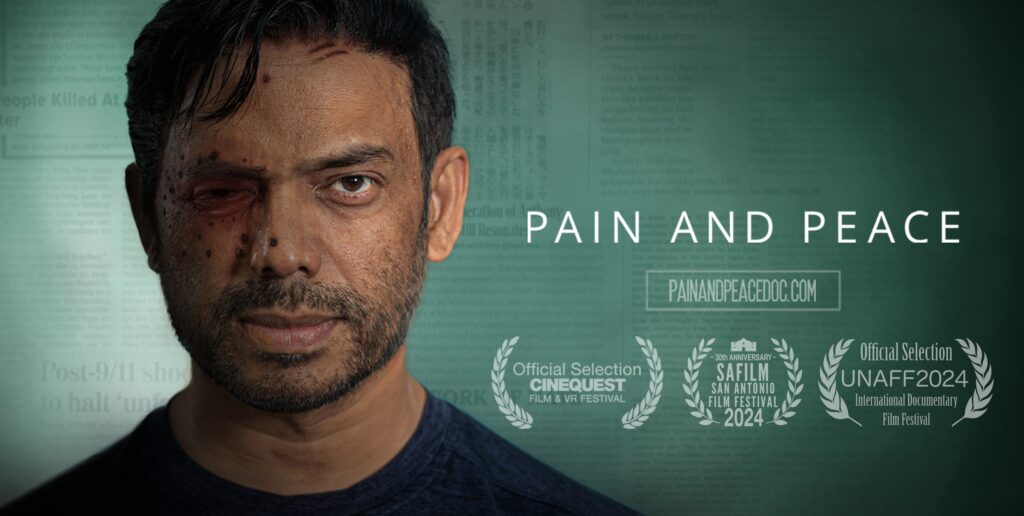
Hate crime survivor’s Muslim faith inspires remarkable life
After being shot, Rais Bhuiyan’s life hit “rock bottom,” he told the Wisconsin Muslim Journal in an interview last week. Bhuiyan lost his job and his home. He lost vision in one eye and his face bore scars from the double-barrel shotgun blast. Bhuiyan spent almost a decade rebuilding his life.
That encounter with hate, combined with his strong Muslim faith, inspired him to devote his life to understanding the roots of hate and the power of forgiveness. When his assailant Mark Stroman was on death row, Bhuiyan became his strongest advocate, hiring lawyers to ask for his life to be spared. Though Bhuiyan did not win a stay of execution for Stroman, he offered Stroman his forgiveness.
Partnering with Emmy-winning director and producer Mark Feijo, Bhuiyan began a journey across America, interviewing victims and perpetrators of violence. He wanted to understand why a human being would inflict violence on another. In the process, he walked away from his IT career and dedicated all his time to World Without Hate, a nonprofit he founded in 2010 that aims to prevent and disrupt hate and violence through empathy education.
WMJ interviewed Bhuiyan about the role his Islamic faith played in creating a profound change in his life—from a young immigrant pursuing the American dream to a man dreaming of an American without violence.
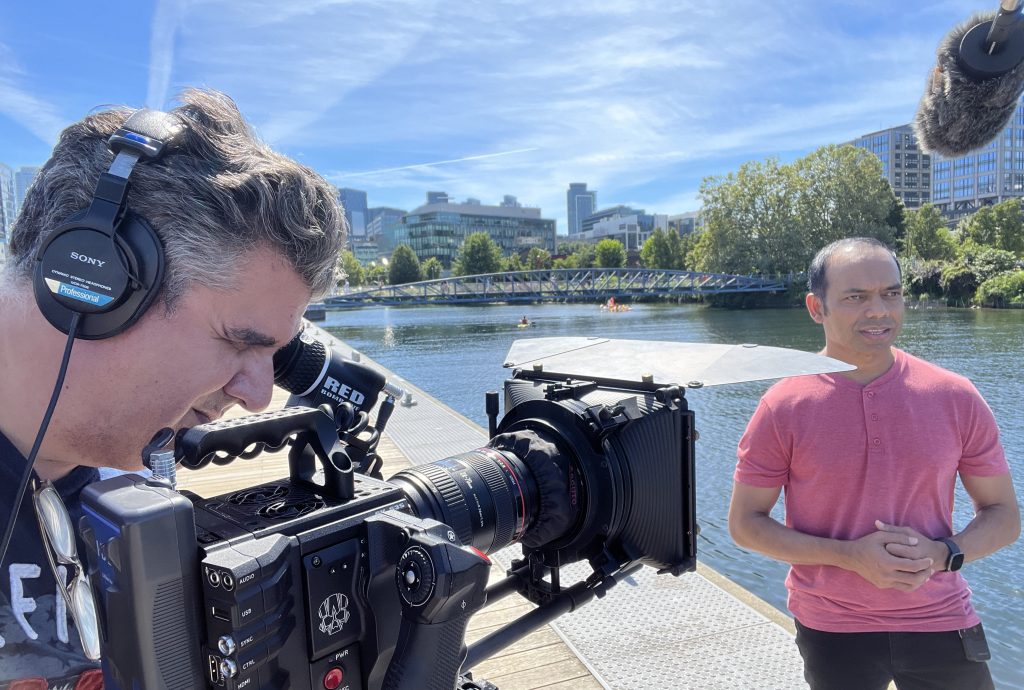
Rais Bhuiyan (right) partnered with multi-Emmy Award-winning filmmaker Mark Feijo (left) to travel to more than a dozen locations in the U.S. and Canada to interview survivors and perpetrators of hate crimes.
Here are the highlights of WMJ’s interview with Bhuiyan:
After suffering so extremely at the hands of a white supremacist, how could you not hate him?
While I was recovering, I remembered what my parents and grandparents, all practicing Muslims, taught me, what my faith taught me—that revenge is never an option. Our faith teaches us to show mercy and kindness, to forgive those who hurt you. It never crossed my mind that I should be revengeful.
I remembered especially my mom telling us that if anyone is mean to you, if someone ever hurts you, the first thing you do is control your tongue. That would give us time to respond wisely. And it would give time for the one who hurt you to think and to wonder why you did not retaliate. It would de-escalate the situation.
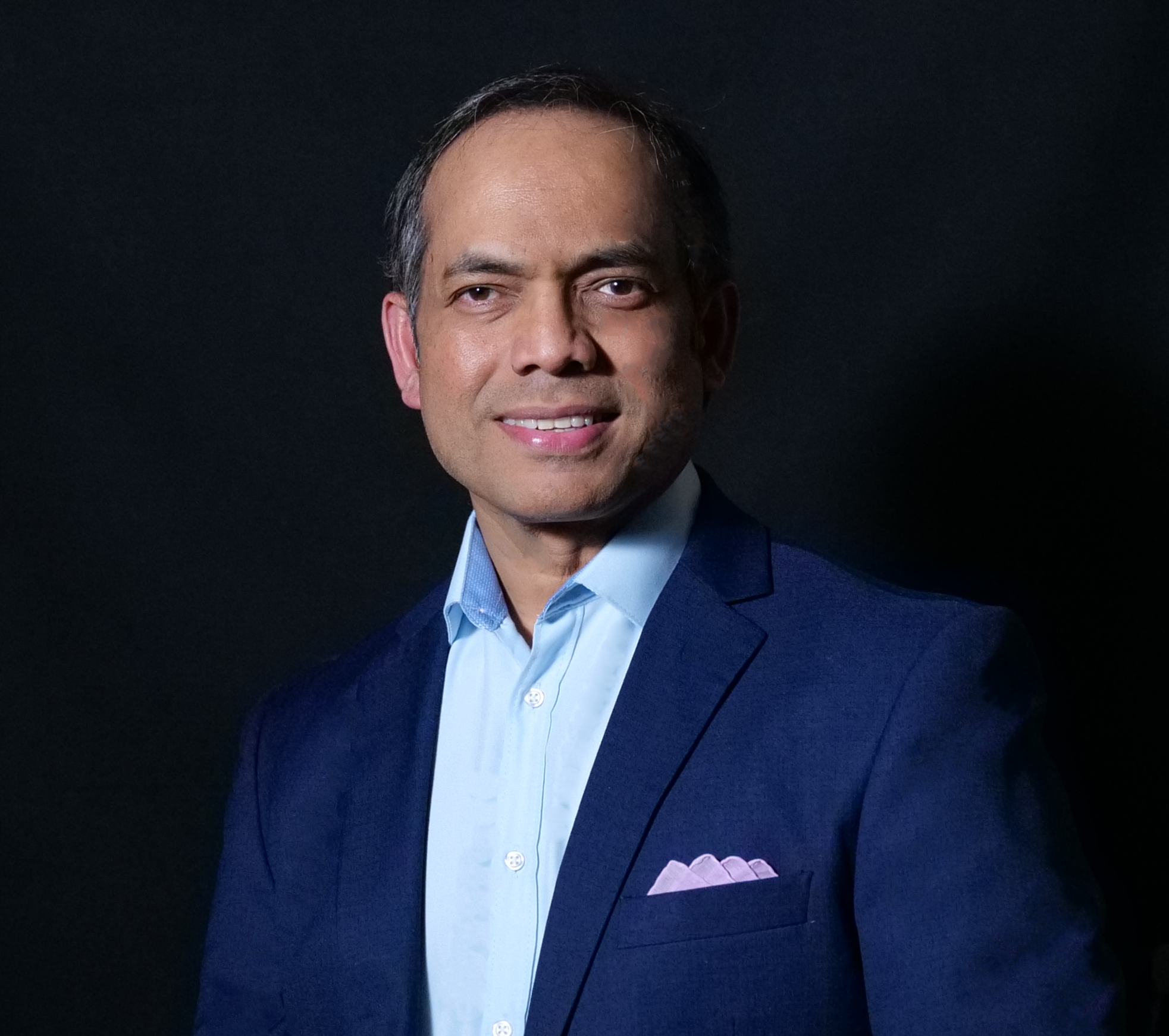
Rais Bhuiyan, founder of World Without Hate, a nonprofit that aims to stop violence through empathy education.
What other lessons did you draw from your faith?
As a child, I grew up, uh, learning a lot about our prophet Mohammad (peace be upon him) from my parents and my grandfather who came to our house every Thursday to sit with us. As a child, when you sit next to your grandfather, you feel the love and affection. He would talk about our prophet and his stories shaped my life. I learned the prophet was so loving and forgiving, that he forgave his enemies and never took revenge, even when he himself was physically assaulted in Taif, a city near Makkah.
When the angel Gabriel asked him if he wanted the people who harmed him punished, the prophet raised his hands and prayed for forgiveness for the people, similar to what prophet Jesus had done.
That gave me a different perspective of the power of forgiveness, that it’s not a weak quality. Rather, it’s a powerful human quality. If you’re able to forgive it, it not only reduces your thoughts of anger and violence, it not only helps you to get out of your sadness and depression, it helps make peace.
So, what did you do?
I took time and shifted my focus to rebuilding my life. My life was almost destroyed. I had no loved ones here, no family members, and the hospital discharged me the next morning.
I was going through a rock-bottom situation. So, I just kept my mouth shut and spent my time processing what happened to me and thinking about how to rebuild my life.
I tried to find something positive. I asked myself, “What good is in this situation?” God gave me my life back. God gave me a second chance.
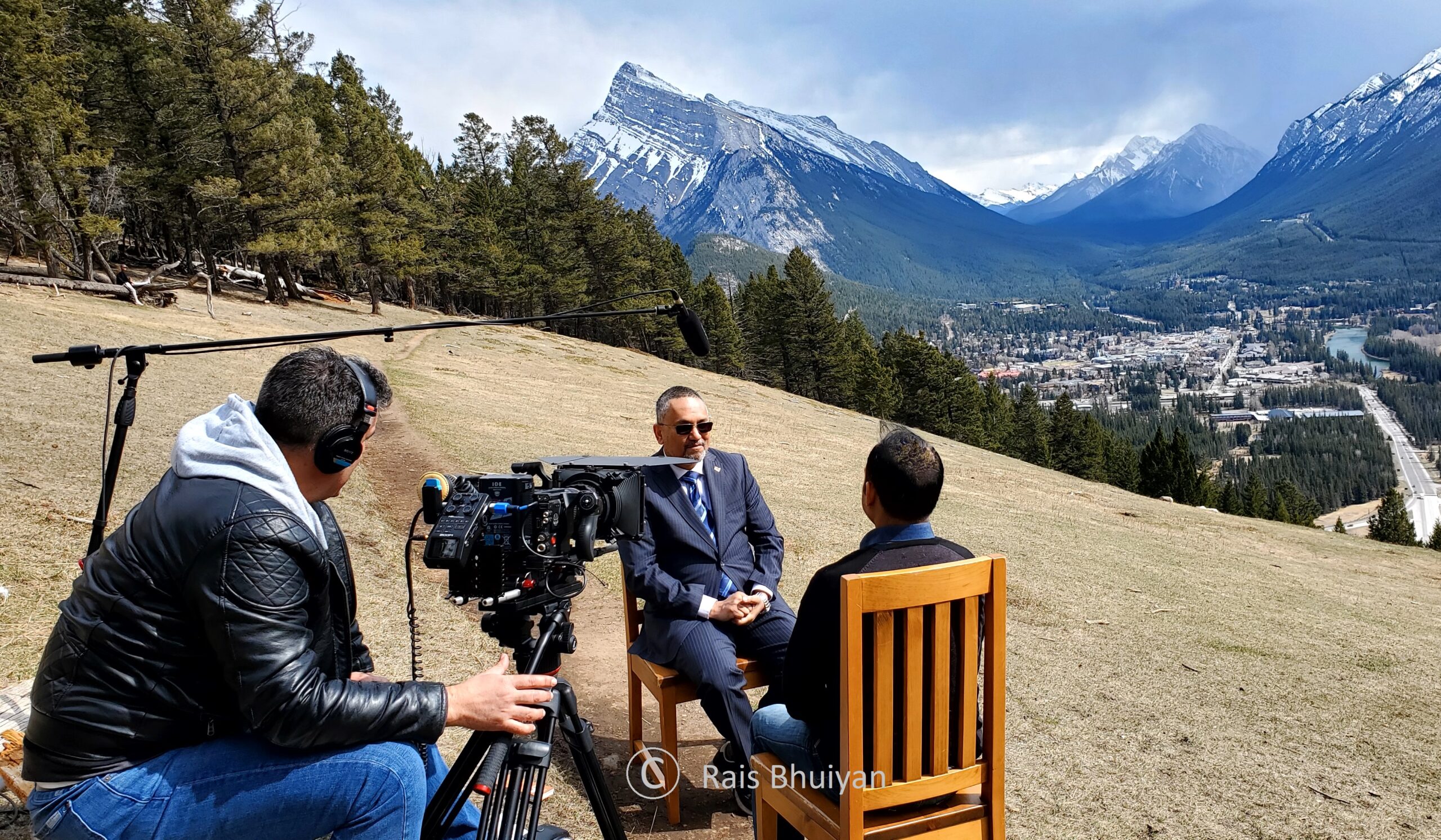
Dr. Kawser Ahmed teaches conflict and resilience, peacebuilding, counter-radicalization and other related courses at the University of Winnipeg in Canada. He was interviewed by Rais Bhuiyan in Banff, Canada.
Weren’t you angry?
Of course, I was angry. This guy came and destroyed my life. I asked myself, “Why me? I did nothing wrong.”
I knew I could not change what had happened to me, but now I have the power to make wise decisions so that I can get the best out of it and rebuild my life. That helped me to keep going rather than remain angry.
I knew I had to leave the matter of justice up to God and the judicial system. That helped me move on rather than dwelling on destructive thoughts and anger.
Why did you decide to go on a journey to interview other victims of violence and their perpetrators?
I wanted to understand what had happened to me. I was not a threat to the man who shot me. I was not a threat to this country. So, why did he do this crime? Why did he not see me as a human being and hesitate to pull the trigger?
I know what it feels like to wake up each day with the wounds of hate on me and to live during the continued rise of intolerance, extremism and hate against Asian Americans, Blacks, Jews, Muslims, LGBTQ and many other groups. I wanted to learn what drives people to such visceral hate. And how do the targets of that hate find purpose and even peace through their pain?
What other stories did you find?
There are many. One that stands out is the 2012 shooting at the Sikh temple in Oak Creek, Wisconsin. The son of one of the victims of this mass shooting was able to forgive. As a result, a leading white supremacist had a change of heart.
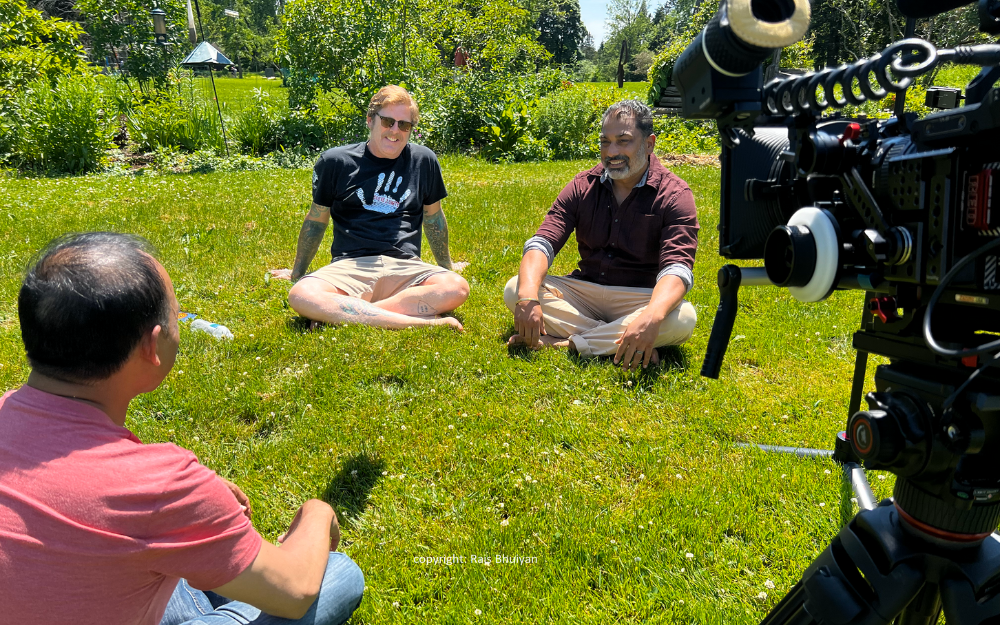
Arno Michaelis (left), a former white supremacist, and Pardeep Singh Kaleka (right), whose father was killed in the 2012 mass shooting at the Sikh temple in Oak Creek, Wisconsin, told Rais Bhuiyan about the growth of their friendship.
What prompted you to start World Without Hate?
I got my life back. I begged God to give me a second chance and He gave it to me. What happened to me was very unexpected and it was a tragedy. But with our God-gifted human capacity for inner restraint that I was able to discover through this tragedy, I was able to move forward. I was able to get beyond my bitter experience and any kind of destructive anger and intolerance that the incident could have injected into me. I chose not to remain sad, angry and depressed.
And I realized I am not the only one that has faced tremendous adversity in this life. Many people in this world need to learn how to move forward, need some inspiration and some guidance. I thought I should share my story in hopes of helping people, in hopes of healing people, to help them find purpose and peace.
I wanted to create ways to share more stories like mine and see if those stories could help others find meaning in their own lives, to help us repair our fractured humanity.
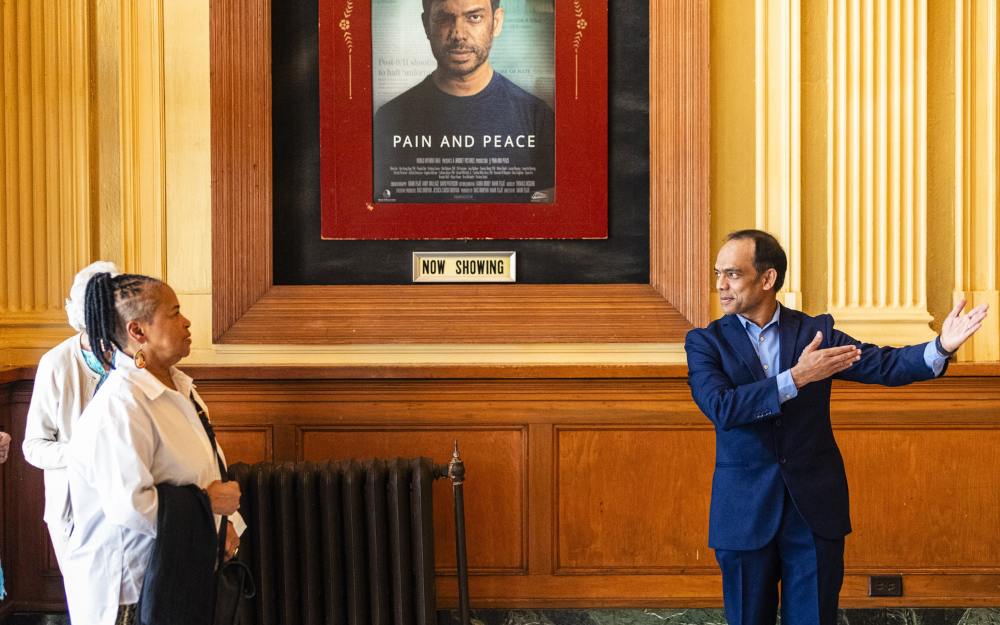
“Pain and Peace” kicks off the Milwaukee Muslim Film Festival at 7 p.m., Thursday, Oct. 17.
